Shares are up more than 160% in six months as investors embrace the AI infrastructure story.
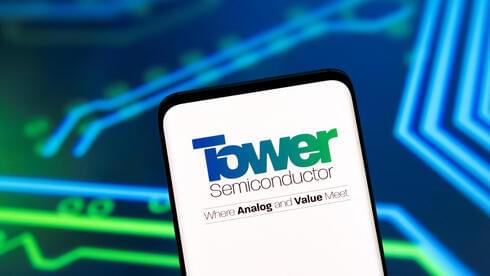


On the steep Mediterranean cliffs of Gibraltar, archaeologists have stepped into a room that no human had seen for tens of thousands of years. Hidden behind a plug of ancient sand in Vanguard Cave, part of the Gorham’s Cave Complex, a 13-meter chamber lay sealed for roughly 40,000 years, preserving rare clues to the final chapters of Neanderthal life on a changing coastline.
For scientists, this is not just a dramatic discovery. It is a time capsule that connects deep prehistory with very current questions about sea level rise, coastal ecosystems, and how humans respond when their environment transforms around them.
Gorham’s Cave Complex sits within the Gibraltar Nature Reserve and was inscribed as a UNESCO World Heritage Site in 2016, largely because it preserves some of the last known refuges of Neanderthals in Europe. Vanguard Cave and its neighbors show evidence of Neanderthal use for roughly 100,000 years, possibly until around 28,000 years ago, later than many other sites across the continent.
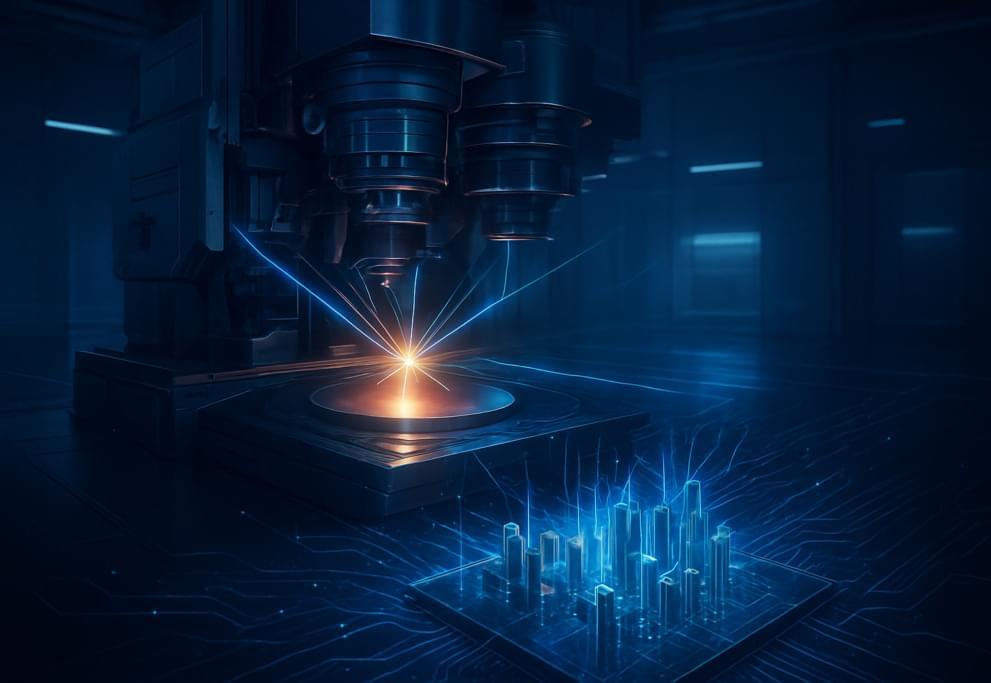
As of January 2026, the global race for semiconductor supremacy has reached a fever pitch, centered on a massive, truck-sized machine that costs more than a fleet of private jets. ASML (NASDAQ: ASML) has officially transitioned its “High-NA” (High Numerical Aperture) Extreme Ultraviolet (EUV) lithography systems into high-volume manufacturing, marking the most significant shift in silicon fabrication in over a decade. While the industry grapples with the staggering $350 million to $400 million price tag per unit, Intel (NASDAQ: INTC) has emerged as the aggressive vanguard, betting its entire “IDM 2.0” turnaround strategy on being the first to operationalize these tools for the next generation of “Angstrom-class” processors.
The transition to High-NA EUV is not merely a technical upgrade; it is a fundamental reconfiguration of how the world’s most advanced AI chips are built. By enabling higher-resolution circuitry, these machines allow for the creation of transistors so small they are measured in Angstroms (tenths of a nanometer). For an industry currently hitting the physical limits of traditional EUV, this development is the “make or break” moment for the continuation of Moore’s Law and the sustained growth of generative AI compute.
New simulations performed on a NASA supercomputer are providing scientists with the most comprehensive look yet into the maelstrom of interacting magnetic structures around city-sized neutron stars in the moments before they crash. The team identified potential signals emitted during the stars’ final moments that may be detectable by future observatories.
“Just before neutron stars crash, the highly magnetized, plasma-filled regions around them, called magnetospheres, start to interact strongly. We studied the last several orbits before the merger, when the entwined magnetic fields undergo rapid and dramatic changes, and modeled potentially observable high-energy signals,” said lead scientist Dimitrios Skiathas, a graduate student at the University of Patras, Greece, who is conducting research for the Southeastern Universities Research Association in Washington at NASA’s Goddard Space Flight Center in Greenbelt, Maryland.
A paper describing the findings is published in the The Astrophysical Journal.
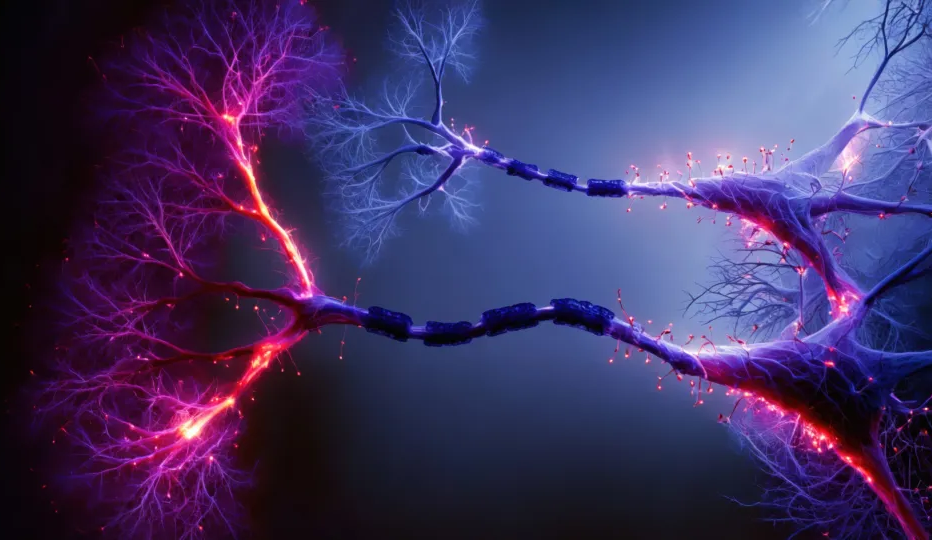
Researchers at Lund University have developed a new method to reprogram the brain’s support cells into parvalbumin neurons, the cells that help keep brain activity in balance. These cells are key in conditions like epilepsy, and creating them in the lab has long been a challenge.
By bypassing the stem-cell stage, the team can now generate these neurons faster and more efficiently. The breakthrough opens new possibilities for studying disease mechanisms, and, in the future, for replacing damaged brain cells.
Read about the research here: https://www.lunduniversity.lu.se/article/researchers-create-…p-its-cool.
Photo: Hal Gatewood, Unsplash.
Lund University. Parvalbumin cells play a central role in keeping brain activity in equilibrium. They control nervcell signalling, reduce overactivity and make sure that the brain is working to a rhythm. Researchers sometimes describe them as the cells that “make the brain sound right”.When these cells malfunction or decrease in number, the balance of the brain is disrupted. Previous studies suggest that damaged parvalbumin cells may contribute to disorders such as schizophrenia and epilepsy.
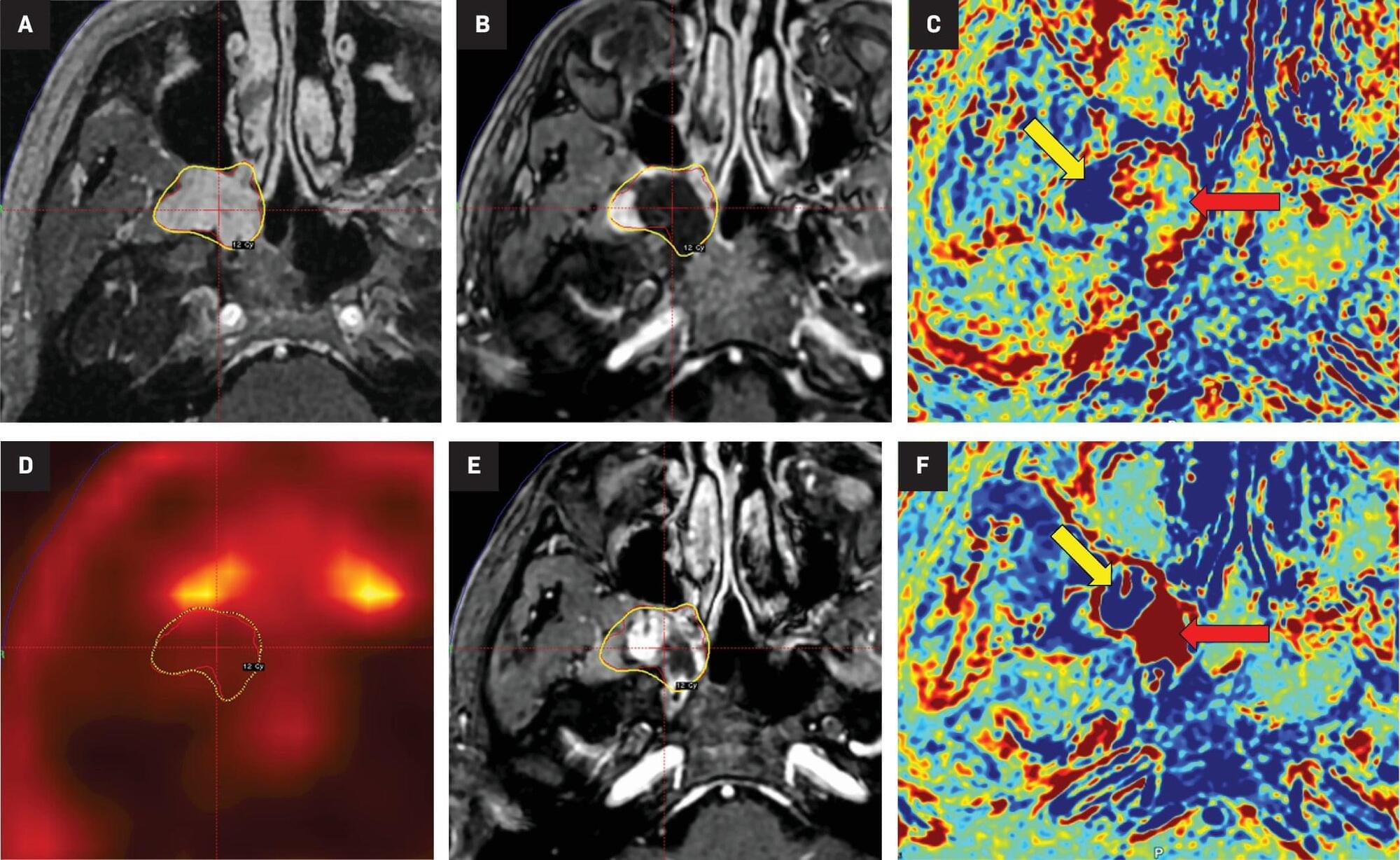
Learn more 🔗
Trigeminal schwannomas (TS) represent 0.8 to 5% of intracranial schwannomas. Due to their localization, surgery has a high morbidity, with stereotactic radiosurgery being a frequent method of treatment with a high control rate. The main side effects due to radiation are pseudoprogression and worsening of the symptoms related to the affected nerve. Despite tumor necrosis, they tend to be progressive, small, and to spread throughout the tumor. We present a rare case of a 48-year-old woman with trigeminal schwannoma who underwent gamma knife radiosurgery and presented with facial pain immediately after the procedure with significant worsening a few hours later. MRI showed necrosis of the medial part of the extracranial extension of the tumor. This is the first report of hyperacute tumor necrosis after radiation for schwannomas.

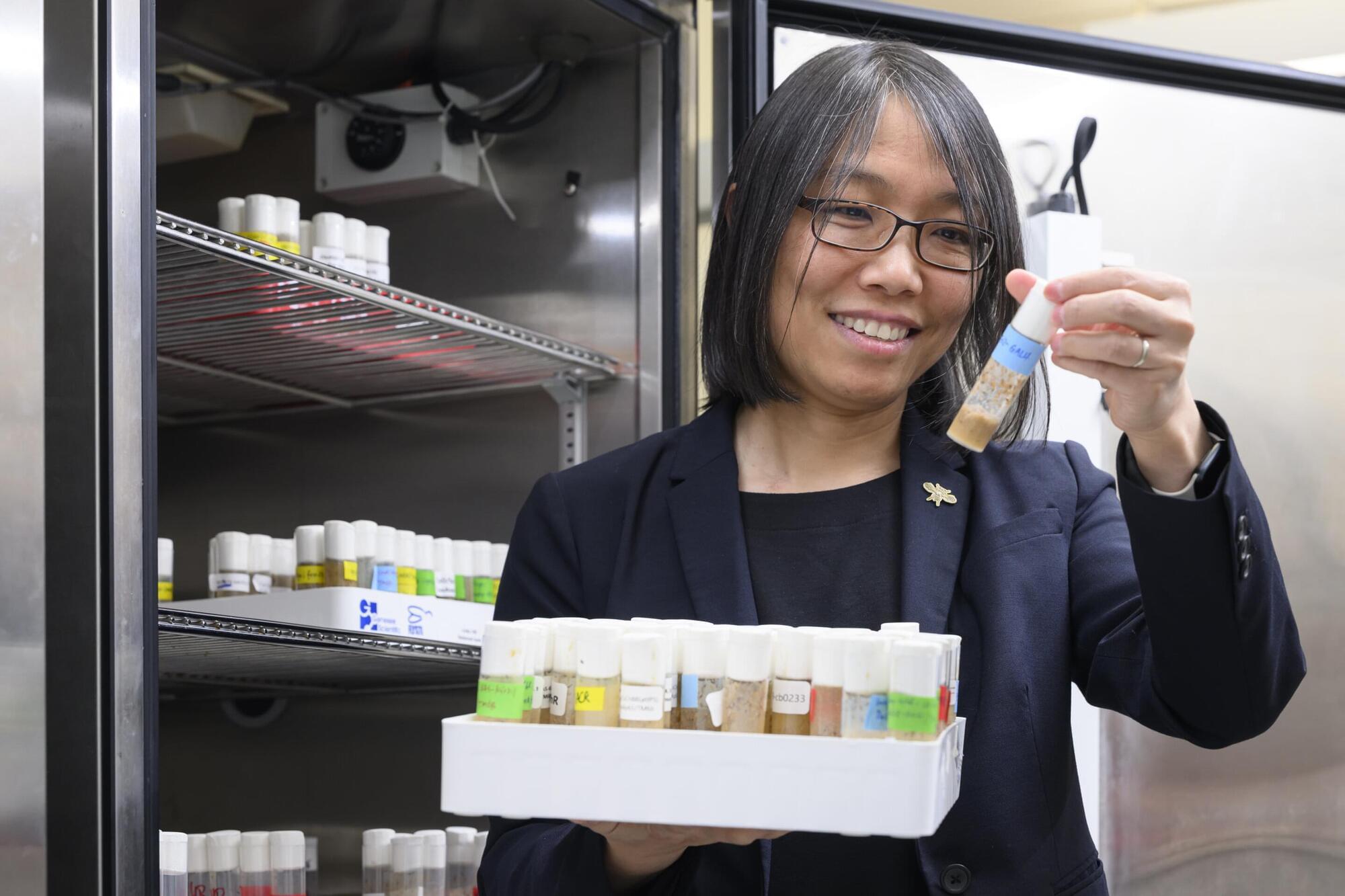
Why do we sometimes keep eating even when we’re full and other times turn down food completely? Why do we crave salty things at certain times, and sweets at other times? The answers, according to new neuroscience research at the University of Delaware, may lie in a tiny brain in an organism you might not expect.
Lisha Shao, assistant professor in the Department of Biological Sciences in the College of Arts and Sciences, has uncovered a neural network in the brains of fruit flies that represents a very early step in how the brain decides—minute by minute—whether a specific food is worth eating. The work was published in the journal Current Biology.
“Our goal is to understand how the brain assigns value—why sometimes eating something is rewarding and other times it’s not,” Shao said.
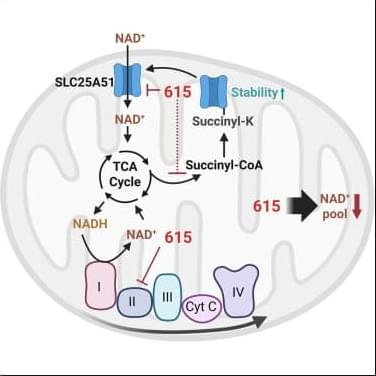
Online now: Jia et al. reveal that KRAS-mutant leukemic cells, which express low SLC25A51 protein, are selectively killed by 615 through reducing mitochondrial NAD+. 615 simultaneously binds to and inhibits both SLC25A51, a mitochondrial NAD+ importer, and SDHA, an ETC component. It further reduces SLC25A51 protein by decreasing K264 succinylation, thereby depleting mitochondrial NAD+.
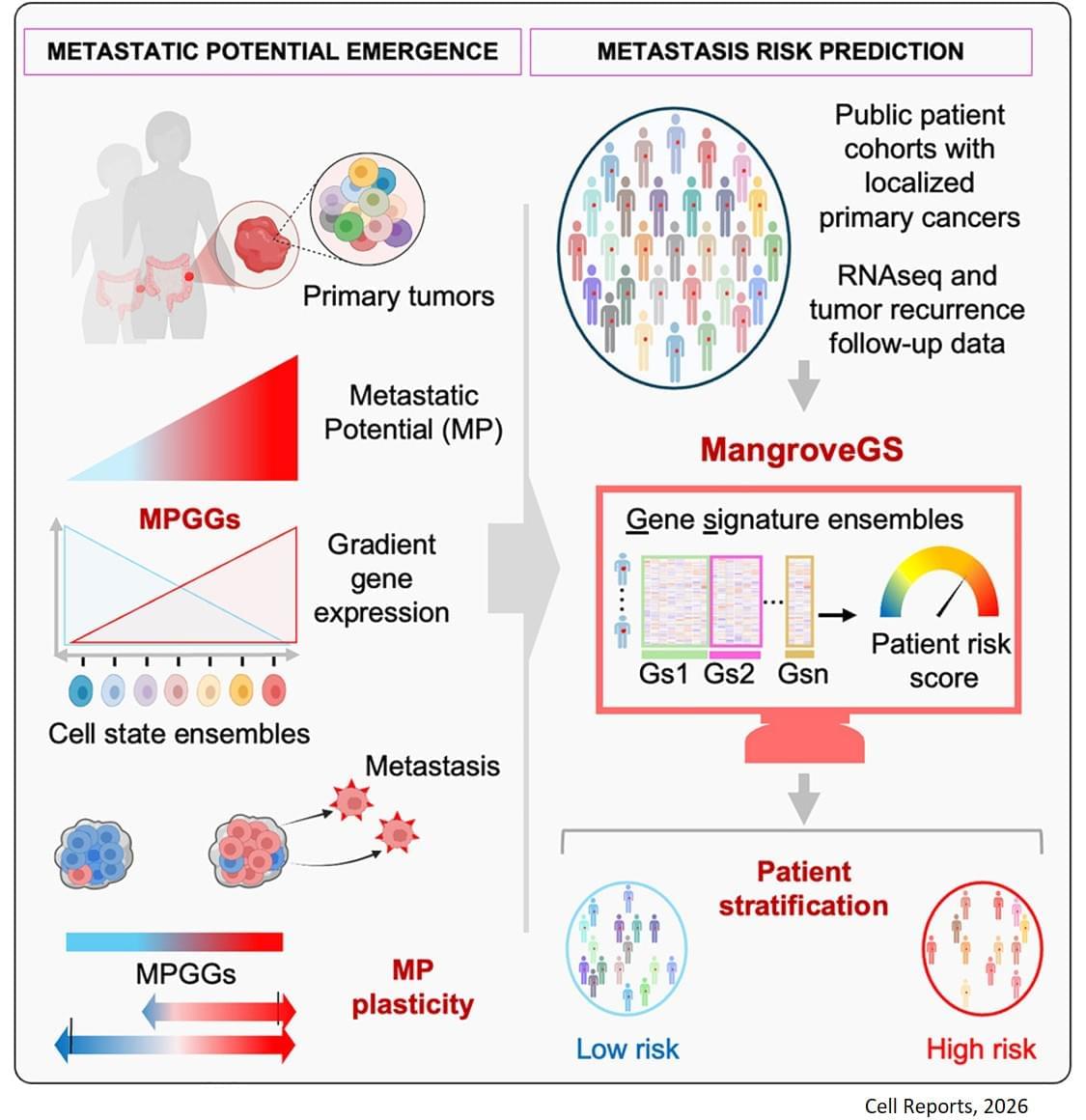
Metastasis remains the leading cause of death in most cancers, particularly colon, breast and lung cancer. Currently, the first detectable sign of the metastatic process is the presence of circulating tumor cells in the blood or in the lymphatic system. By then, it is already too late to prevent their spread. Furthermore, while the mutations that lead to the formation of the original tumors are well understood, no single genetic alteration can explain why, in general, some cells migrate and others do not.
“The difficulty lies in being able to determine the complete molecular identity of a cell – an analysis that destroys it – while observing its function, which requires it to remain alive,” explains the senior author. “To this end, we isolated, cloned and cultured tumor cells,” adds a co-first author of the study. “These clones were then evaluated in vitro and in a mouse model to observe their ability to migrate through a real biological filter and generate metastases.”
The analysis of the expression of several hundred genes, carried out on about thirty clones from two primary colon tumors, identified gene expression gradients closely linked to their migratory potential. In this context, accurate assessment of metastatic potential does not depend on the profile of a single cell, but on the sum of interactions between related cancer cells that form a group.
The gene expression signatures obtained were integrated into an artificial intelligence model developed by the team. “The great novelty of our tool, called ‘Mangrove Gene Signatures (MangroveGS)’, is that it exploits dozens, even hundreds, of gene signatures. This makes it particularly resistant to individual variations,” explains another co-first author of the study. After training, the model achieved an accuracy of nearly 80% in predicting the occurrence of metastases and recurrence of colon cancer, a result far superior to existing tools. In addition, signatures derived from colon cancer can also predict the metastatic potential of other cancers, such as stomach, lung and breast cancer.
After training, the model achieved an accuracy of nearly 80% in predicting the occurrence of metastases and recurrence of colon cancer, a result far superior to existing tools. In addition, signatures derived from colon cancer can also predict the metastatic potential of other cancers, such as stomach, lung and breast cancer.
Thanks to MangroveGS, tumor samples are sufficient: cells can be analysed and their RNA sequenced at the hospital, then the metastatic risk score quickly transmitted to oncologists and patients via an encrypted Mangrove portal that has analysed the anonymised data.
“This information will prevent the overtreatment of low-risk patients, thereby limiting side effects and unnecessary costs, while intensifying the monitoring and treatment of those at high risk,” adds the senior author. “It also offers the possibility of optimising the selection of participants in clinical trials, reducing the number of volunteers required, increasing the statistical power of studies, and providing therapeutic benefits to the patients who need it most.” ScienceMission sciencenewshighlights.